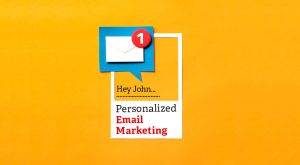In today’s fast-paced digital landscape, email marketing remains one of the most effective tools for businesses to connect with their audience. However, the manual processes of yesteryears have given way to sophisticated automation systems that are transforming how marketers engage with their subscribers. Automation in email marketing is not just a trend but a fundamental shift that leverages technology to deliver personalized, timely, and relevant content with minimal effort. Let’s explore the significant role that automation plays in modern email marketing.
1. Personalization at Scale
One of the most critical advantages of automation in email marketing is its ability to personalize communication at scale. Instead of sending a one-size-fits-all email to thousands of subscribers, automation tools allow marketers to segment their audience based on various factors such as demographics, purchase behavior, engagement levels, and more. Automated systems then send tailored content that resonates with each segment, improving open rates, click-through rates, and overall engagement.
2. Improved Efficiency and Time Savings
Automation eliminates the repetitive tasks that often bog down marketing teams. With predefined workflows, emails can be triggered automatically based on specific actions, such as signing up for a newsletter, abandoning a shopping cart, or completing a purchase. This approach ensures that the right message is sent to the right person at the right time, without manual intervention. The result is a significant reduction in workload, allowing teams to focus on strategy and creativity rather than tedious tasks.
3. Enhanced Customer Journey Mapping
Modern customers expect seamless, consistent experiences across multiple touchpoints. Automation enables marketers to create comprehensive customer journey maps that guide prospects from awareness to conversion and beyond. Automated email campaigns can nurture leads by delivering relevant content at each stage of the journey, helping to build trust and drive conversions. By analyzing data from these automated campaigns, marketers can continuously refine their strategies to meet evolving customer needs.
4. Data-Driven Decision Making
Email marketing automation tools come equipped with powerful analytics features that provide insights into customer behavior, campaign performance, and more. Marketers can use this data to make informed decisions, optimize campaigns, and personalize content further. Real-time tracking allows for quick adjustments, ensuring that campaigns are always aligned with the audience’s preferences and behaviors. Data-driven decision-making not only enhances the effectiveness of email marketing but also contributes to overall business growth.
5. A/B Testing for Continuous Improvement
Automation platforms facilitate A/B testing, where marketers can experiment with different subject lines, content formats, send times, and more to determine what resonates best with their audience. By automating this process, marketers can quickly gather data and apply the insights to future campaigns. This iterative approach fosters continuous improvement, enabling businesses to refine their strategies and achieve better results over time.
6. Increased Engagement and Retention
Automation helps maintain consistent communication with customers, which is crucial for fostering engagement and loyalty. Automated emails such as welcome messages, birthday greetings, and re-engagement campaigns make subscribers feel valued and keep them engaged with the brand. Additionally, automation tools can trigger emails based on specific customer actions, such as purchasing a product, allowing for timely follow-ups and upsell opportunities. This level of engagement is key to retaining customers in an increasingly competitive market.
7. Cost-Effectiveness and Scalability
Automation significantly reduces the costs associated with email marketing by streamlining processes and reducing the need for manual labor. It also allows businesses of all sizes to scale their marketing efforts without a proportional increase in resources. Small businesses, in particular, benefit from automation by competing with larger enterprises on a more level playing field. With the right tools and strategy, even a small team can manage complex email marketing campaigns effectively.
Conclusion
The role of automation in modern email marketing is undeniably transformative. It empowers marketers to deliver personalized, timely, and relevant content, driving engagement, retention, and growth. By automating repetitive tasks, leveraging data-driven insights, and enabling continuous improvement through testing, businesses can optimize their email marketing strategies for maximum impact. As technology continues to advance, automation will only become more integral to email marketing, helping businesses of all sizes achieve their goals more efficiently and effectively.



